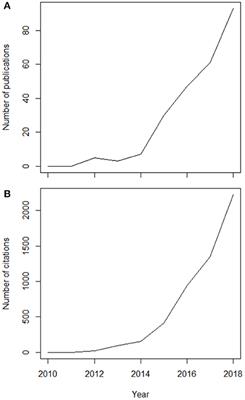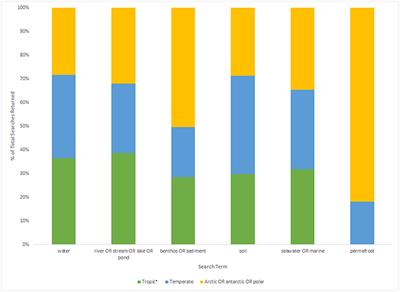SYSTEMATIC REVIEW
Published on 19 May 2020
A Systematic Review of Sources of Variability and Uncertainty in eDNA Data for Environmental Monitoring

doi 10.3389/fevo.2020.00135
- 8,404 views
- 66 citations
24k
Total downloads
123k
Total views and downloads
Select the journal/section where you want your idea to be submitted:
SYSTEMATIC REVIEW
Published on 19 May 2020

ORIGINAL RESEARCH
Published on 30 Apr 2020

BRIEF RESEARCH REPORT
Published on 14 Jan 2020

REVIEW
Published on 09 Jan 2020

ORIGINAL RESEARCH
Published on 25 Nov 2019

POLICY AND PRACTICE REVIEWS
Published on 08 Nov 2019

HYPOTHESIS AND THEORY
Published on 29 Oct 2019

ORIGINAL RESEARCH
Published on 29 Oct 2019

PERSPECTIVE
Published on 06 Sep 2019

ORIGINAL RESEARCH
Published on 10 Jul 2019

ORIGINAL RESEARCH
Published on 02 Jul 2019


Frontiers in Environmental Science
Frontiers in Genetics